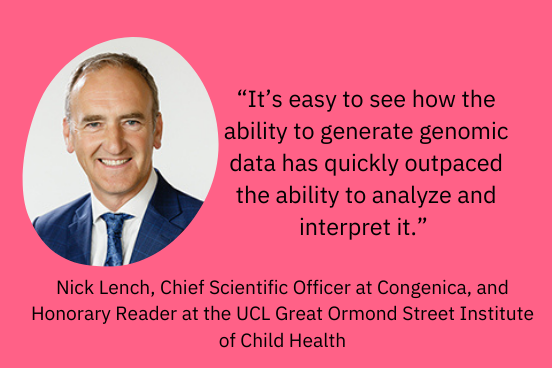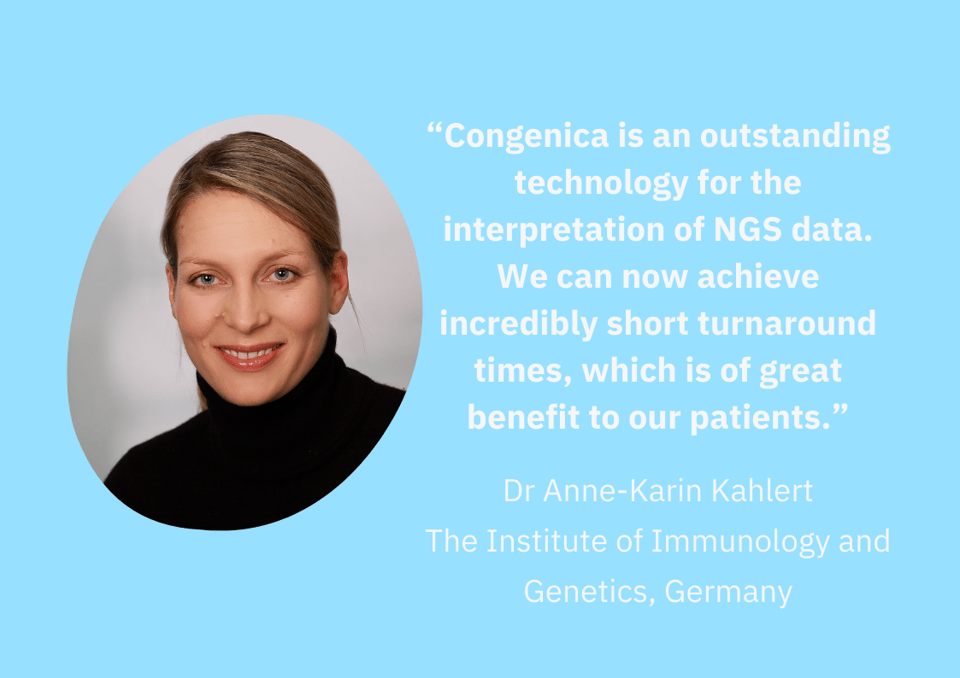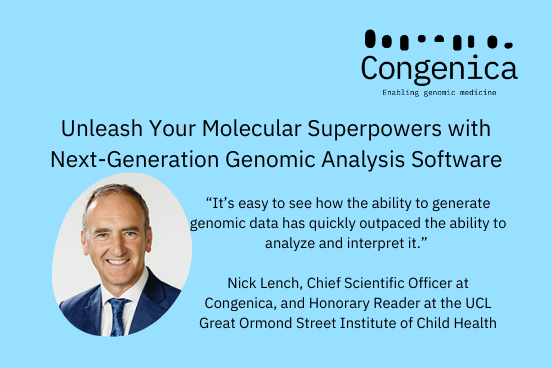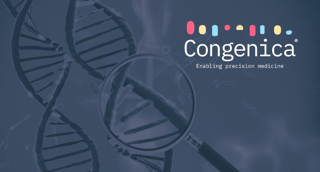Unleash Your Molecular Superpowers with Next-Generation Genomic Analysis Software
NGS data analysis software augments molecular medicine powers so more patients can be diagnosed and treated
With its potential to revolutionize diagnosis, treatment, and outcomes for patients across multiple clinical indications, demand for next-generation sequencing (NGS) is increasing rapidly. But interpreting sequenced data –complex, lengthy, and costly –presents a bottleneck to widespread routine clinical adoption.
To compound the problem, the interpretation of genetic results often still relies heavily on labor intensive processes that only highly trained clinical scientists can offer.
We need automation and scaling to bring genetic testing to the masses
Automation augments clinical expertise, reducing repetitive analysis steps to enable rapid-turn-around and high quality, accurate genetic disease identification. This improves throughput in molecular diagnostics laboratories to meet the ever-growing demand for genomics services.
Initially, we believed that achieving the US$1000 genome would make whole-genome sequencing a reality in the clinic –but that price point only reflects the cost of generating sequence data, not the staff time, sample processing, or bioinformatic processing and interpretation required to perform this complex task.
In fact, a study by Schwarze et al. concluded that it costs around GBP 7000 or almost US$ 9000 per trio case, to prepare, sequence, analyse and report on each sample [1]. As NGS accessibility continually increases, we realize that expert NGS data analysis and interpretation is the new bottleneck. Across Europe, there are fewer than 400 registered Clinical Laboratory Geneticists [2], a position whose recommended training takes approximately five years.
The shortage of Clinical Laboratory Geneticists is just as severe in the US, with 71 percent of genomics laboratories already at or near capacity [3]–and here, again, interpretation and reporting are the rate-limiting step. This is hardly surprising as a rare disease genomic analysis will typically take 20 or more hours to interpret when conducted using standard laboratory workflows.

How does Congenica NGS data analysis software help?
Congenica empowers healthcare professionals to be able to rapidly, reliably and repeatably convert genomic data into actionable insights that inform life-changing diagnoses. We provide NGS data analysis software and services to enable rapid analysis, interpretation and reporting of next generation sequenced data, streamlining NGS workflows and accelerating the data analysis pipeline.
Congenica does this for whole genome, whole exome and gene panel data, accepting FASTQ, VCF and BAM files from all major sequencing machines, and is compatible with both reference builds of the human genome (GRCh37 and GRCh38). We also offer interpretation and reporting services, delivered by our in-house team of clinical scientists. The Congenica platform can be used securely anywhere in the world and with any volume of tests through flexible, scalable cloud or local deployments.
The Congenica clinical decision support platform simplifies complex genomic data workflows so that a 20-hour case analysis and reporting cycle can be completed in a small fraction of the time.
What impact does NGS analysis automation have?
Many rare and inherited diseases feature recurrent causal variants and clinical users should be able to automatically classify cases featuring known variants avoiding excessive analysis time. This unshackles clinical laboratory geneticists to focus on interpreting previously unclassified or unseen variants which in turn powers future automated analysis.
We reviewed the analysis of over 25,000 whole genomes and found that by using Congenica, scientists can reduce interpretation and reporting times from over20 hours to an average of 30 minutes.
By automatically interpreting known variants, this time can be further reduced to just five minutes – giving scientists the power to analyze genomic data at scale and enabling widespread clinical use.

Congenica gives clinicians and scientists a range of superpowers
Our goal is to give clinicians and scientists a range of superpowers so they can help more patients. These superpowers include:
- Perfect memories – providing automatic interpretation reports for all previously classified variants
- X-ray vision – using machine learning scoring to predict variant pathogenicity. We offer the most comprehensive selection of in-silico variant effect predictor algorithms in a clinical decision support solution – 5–6 splicing tools, REVEL, CADD and more.
- Super-intelligence – through automatic prioritization and access to literature and databases
- Super-speed –automatically applying ACMG classifications to interpret complex NGS cases in just 5-minutes
The Congenica platform for NGS data analysis helps you improve your diagnostic yield, maximize the efficiency of your workflows, and increase your confidence in each case. By providing clinicians and scientists with machine learning and artificial intelligence tools to automate the classification of known variants, we address bottlenecks and accelerate diagnosis and discovery.
We have already built several of these superpowers into the Congenica platform, with “x-ray vision” viain-built Exomiser variant prioritization and in-silico tools to see through the genetics to predict the effects of variants. Congenica also offers “super-intelligence” via the Mastermind genomic evidence search engine for diseases, genes and variants from medical literature.
But there is more. We are continually releasing new enhancements in the Congenica platform for automated classification of novel (previously unseen) variants, automated ACMG evidence generation, and CNV interpretation and annotation.
Congenica is committed to helping you continue to augment and power up your NGS analysis, turning Clinical Geneticists into real-life superheroes.
References
[1] Schwarze, K. et al (2019).The complete costs of genome sequencing: a microcosting study in cancer and rare diseases from a single center in the United Kingdom. Genetics in Medicine (PMID: 31358947)
[3] American Board of Medical Genetics and Genomics https://www.abms.org/board/american-board-of-medical-genetics-and-genomics/



.png?width=320&height=192&name=Add%20a%20title%20(2).png)
.png?width=320&height=192&name=Untitled%20design%20(8).png)